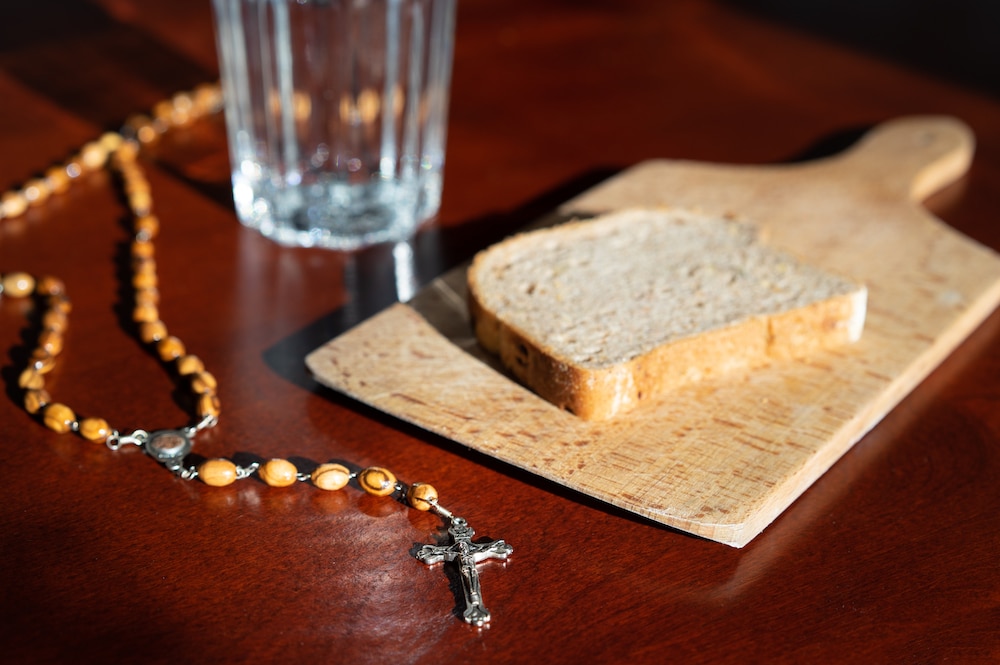“What are you giving up for Lent?” For many Catholics, the question appears almost automatically — and even before the last box of Christmas decorations has been packed up and stowed away. As someone who spent most of my life in that category and with that crowd, I think it’s because Lent can feel a lot like a competition, a 40-day spiritual marathon with winners and losers.
Every Ash Wednesday, it seemed to me, the church threw personal holiness down like a gauntlet. The point, I thought, was to accept the challenge and do everything in my power to excel in achieving it. My naturally competitive nature means that I have always been more than willing to take up just about any challenge. Living the faith was no exception.
Upping the ante in Lent
That’s one reason why I figured that the more demanding and strenuous Lent was, the better. It was a matter of simple logic. If fasting on Fridays demonstrated my love for God, then fasting on Wednesdays and Fridays would do so even more. If praying one novena was good, two or three had to be even more beneficial. Whenever I heard about someone else’s sacrifice, I’d up the ante for myself. If someone was giving up coffee, I’d commit to drinking only water. When someone I knew gave up chocolate (and there was always someone who did), I’d attempt to give up sweets of any kind. There were years I even put pebbles or toothpicks in the soles of my shoes for the season. Nothing was too much for me.
And that was the problem. In doing all those things, I failed to grasp the point of Lenten penitential practices and disciplines. I didn’t realize that because nothing was too much, nothing would ever be enough. Rather than accepting my weaknesses, I tried to live my spiritual life beyond my means and the measure of my strength. And those efforts never produced the fruit of repentance in my life. Instead, they left me exhausted and puffed up. Eventually, I finally recognized that intensifying penitential practices in preparation for Easter isn’t about spiritual bootstrapping or one-upmanship. As a result, I decided to give up giving up things for Lent.

So, for more than a decade now, I’ve been letting God choose what I give up for Lent. And he has chosen some real doozies. The things God has invited me to sacrifice have challenged me at a much deeper level because they call for more faith than I can muster on my own. This approach has made a real difference in what I gain from Lenten practices because God knows what I need better than I do. He is happy to show me all the things I have allowed to take his place. And he is more than willing to reveal the pantheon of idols in my heart, especially when I am convinced that I have none.
Allowing God to choose our Lenten crosses
The truth is that the crosses I used to choose — even the most difficult ones — were still within my control, simply because I was the one who chose them. Sometimes, they required significant discipline on my part, but they also fueled my pride. In contrast, moving across the country, facing a health scare or losing financial security pulls the ground out from under me. And that’s the only way I can truly know what I’ve been standing on all along.
God understands precisely what it will take to make each one of us rely on him, to accept his grace and to trust him more completely.
As St. Francis de Sales wrote, “The everlasting God has in his wisdom foreseen from eternity the cross that he now presents to you as a gift of his inmost heart. This cross he now sends you he has considered with his all-knowing eyes, understood with his divine mind, tested with his wise justice, warmed with loving arms, and weighed with his own hands to see that it is not one inch too large nor one ounce too heavy for you. He has blessed it with his holy name, anointed it with his grace, perfumed it with his consolation, taken one last glance at you and your courage, and then sent it to you from heaven, a special greeting from God to you, an alms of the all-merciful love of God.”





